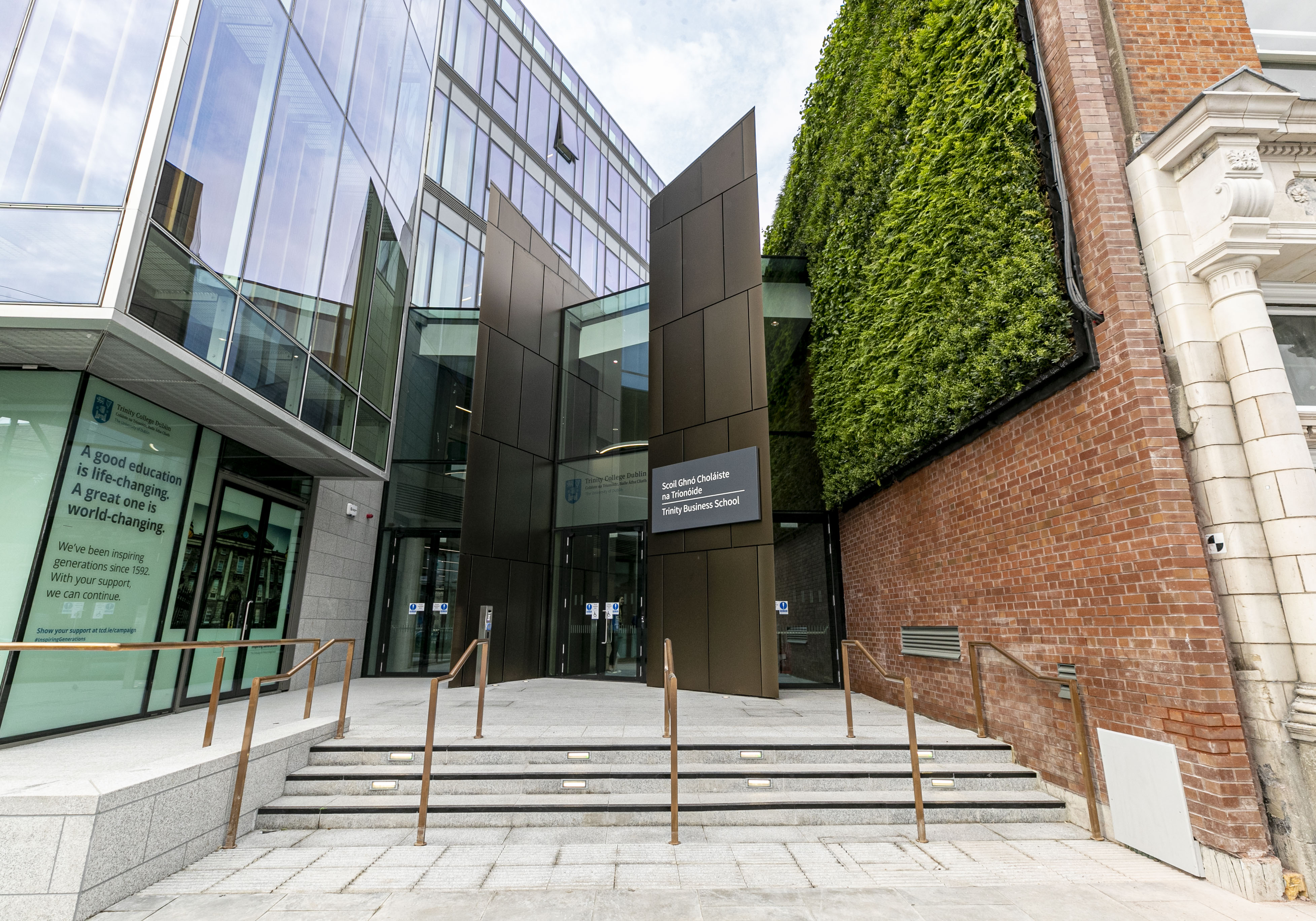Trinity Business School Masters students met the entrepreneur behind BlaBlaCar.

On March 23rd, the Trinity Centre for Digital Business & Analytics hosted an in-person (and online) conversation with Fréderic Mazzella, a French tech entrepreneur and co-founder of, the world’s largest long-distance carpooling community.
The event, which students could attend both in-person and online, provided an opportunity to quiz the successful entrepreneur on how to navigate challenges at all stages of the life cycle of a company, from attracting initial users to settling on a suitable partner for merging or acquisition to ensure the legacy of the firm you have built.
Like many successful tech entrepreneurs, Mazzella has a colourful and varied background; he trained as a classical pianist in his younger years, studied Physics in one of France’s most elite and competitive higher education institutions before taking up a robotics internship at Stanford University, where he later moved into a Master’s programme in computer science.
The idea for BlaBlaCar was, as is often the case, the product of identifying a problem he felt compelled to solve; one Christmas, Mazzella, who didn’t own a car, found himself without a way to get home for Christmas as all the trains were booked. While waiting for his sister, who had to divert 150 km to pick him up, Mazella noticed that many of the drivers he saw on the road had no passengers.
Mazzella, 46, started BlaBlaCar when he was 30 years old. Since its inception in 2006, BlaBlaCar’s user base has grown to 100 million members across 22 countries. As of April 2021, the company has achieved a valuation of more than $2 billion.
Laurent Muzellec, Director of Trinity Centre for Digital Business & Analytics, moderated the conversation and posed some questions to set the tone, such as; why would a person welcome a stranger into their car for the sake of saving a few euros?
“The motivations are not all financial,” Mazzella said, noting that users of the service can save “thousands of euros per year” by car-sharing. However, other motives, such as the social and environmental elements, push people to use the service. BlaBlaCar takes its name from the social dimension; namely those on the service rate themselves from Bla (not very talkative) to BlaBlaBla (utter chatterboxes).
The grading allows for users looking for a conversation-filled carpool to be matched with suitably talkative drivers, or for those looking for quiet. Whatever the conversation level, the company itself is a draw, Mazzella said. “Riding alone can be quite boring.”
The environmental dimension of the service is a considerable draw for users. According to Mazzella, only about 4% of the energy generated in moving a car is spent transporting the physical humans inside, so people can be added to a journey with little environmental consequence without expending energy, while the carbon saving of an individual opting to not use their car is significant.
“There is a guilt we all feel with using fossil fuels,” Mazzella said. “We’ve calculated that BlaBlaCar alone saves 1.6 million tons of CO2 per year. That is more than the entire road emissions of a city such as Paris, which is 1.3 million tonnes. According to Our World in Data, France produced 276 million tonnnes of CO2 in 2020. “So [BlaBlaCar] is diminishing the amount of CO2 produced; we are contributing to this reduction.”
A student asked how BlaBlaCar managed to achieve crucial user acquisition in the early stages of its platform. “In France we’re lucky; we have a train company called SNCF, and they often go on strike. When they go on strike, you just call journalists and say, ‘we have an alternative’, and it’s free publicity.”
Another student enquired as to whether BlaBlaCar had received any compelling acquisition offers, and how one should go about sizing up whether a company would make for a good prospective partner. “We never had a serious offer, but we thought about what we might do in this instance. When you’re in a position where you could sell your business, you have to determine if your buyer is willing to grow your company, or if they just want to kill it.”
Mazzella’s talk was one of many that will feature in the ongoing Conversation with Digital Leaders, organised by the Centre for Digital Business & Analytics. Previous guests included Brian Halligan, founder of Hubspot, Devan Hughes, founder of Buymie, or John Herlihy, former VP EMEA for Google and LinkedIn.


